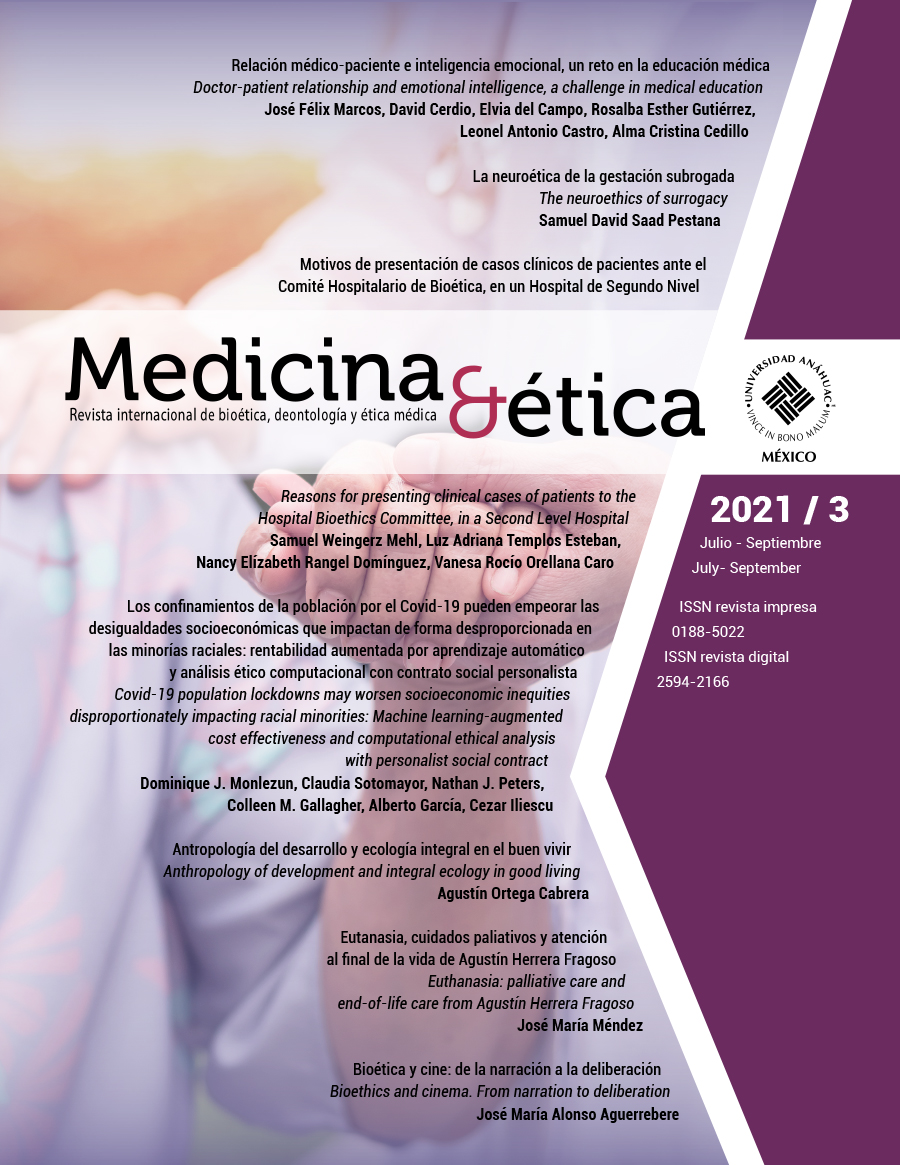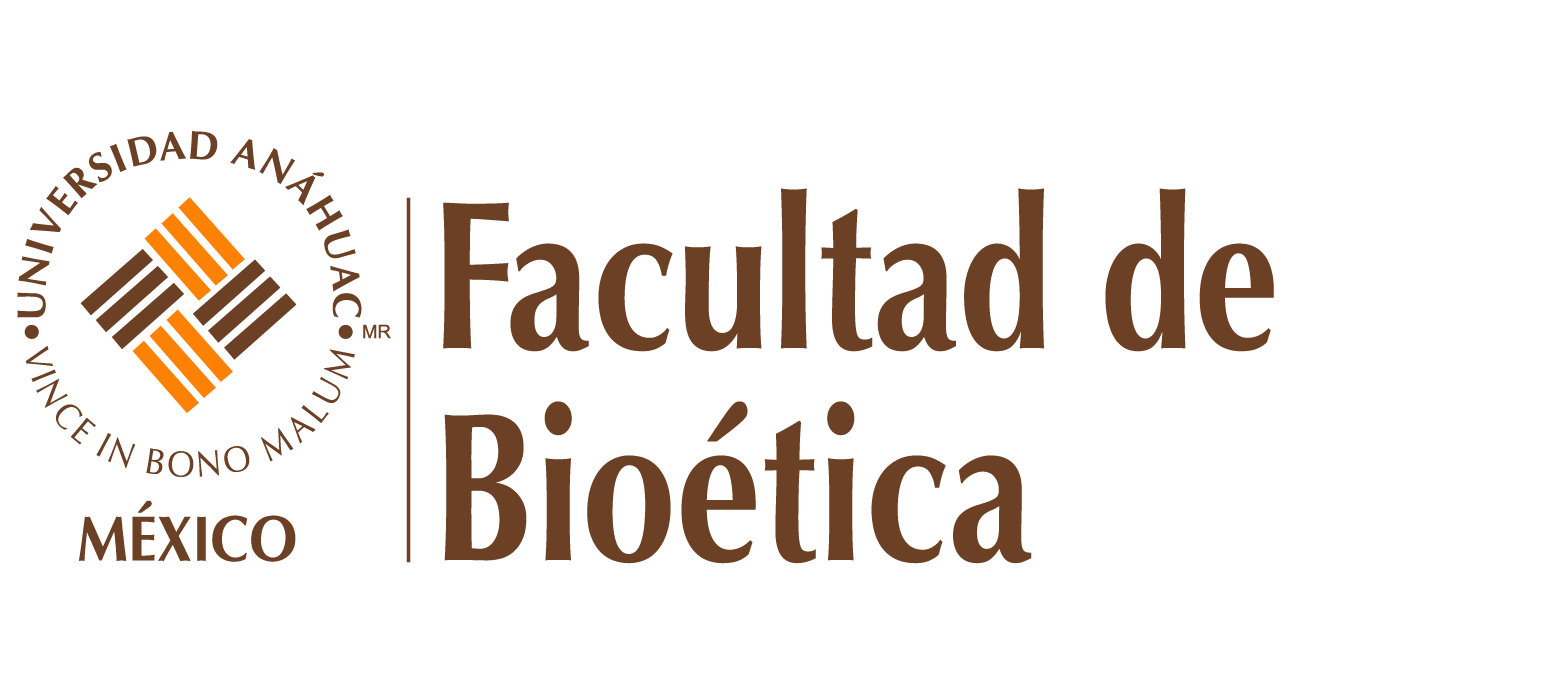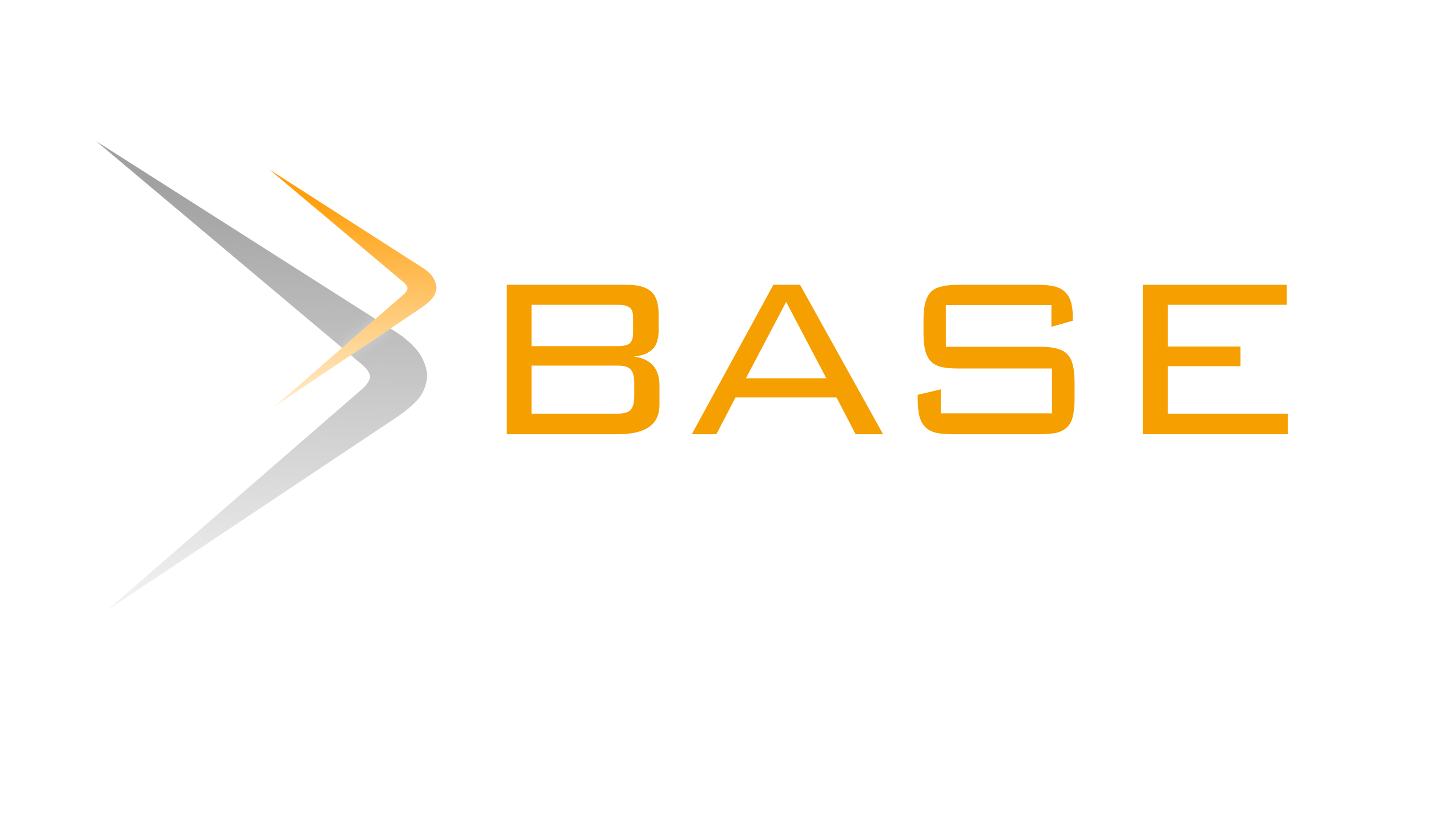Relación médico-paciente e inteligencia emocional, un reto en la educación médica
DOI:
https://doi.org/10.36105/mye.2021v32n3.01Palabras clave:
inteligencia emocional, relación paciente-doctor, educación médicaResumen
La sobre-tecnificación inhumana ha promovido una visión reduc- cionista que afecta la forma en que se ejerce la medicina, dañando gravemente la relación médico-paciente. La carencia de formación en competencias humanísticas determina una visión utilitarista y sociobiologista. La deficiencia en la comprensión con respecto a las emociones individuales y ajenas es determinante en las habilidades sociales que, como médicos, debemos promover en las próximas generaciones, de modo que logremos recentrar la atención médica y científica en una visión antropocentrista. La Inteligencia Emocional (IE) es definida como la habilidad para percibir e identificar las emociones ajenas y propias, para discriminar entre ellas y utilizar dicha información para guiar el pensamiento, actuando en consecuencia. Es necesario estructurar la educación médica de las competencias humanísticas en beneficio del ejercicio profesional, fundado en habilidades de comunicación que reflejen una visión integral del ser humano. Se llevó a cabo una revisión de 83 artículos, con la finalidad de identificar la relación existente entre la Inteligencia Emocional y la relación médicop-paciente, presentando un panorama integral sobre la relevancia que la enseñanza de dichas competencias tiene en la educación médica del siglo XXI.
Descargas
Referencias
2. Papanagnou D, Linder K, Shah A, London K, Chandra S, Naples R. An assess- ment of emotional intelligence in emergency medicine resident physicians. Inter- national Journal of Medical Education. 2017; 8: 439-445. https://doi.org/10.5116ijme.5a2e.a8b4
3. Beauchamp TL, Childress JF, Principles of Biomedical Ethics, Oxford University Press Incorporated. 03 de mayo de 1979; 165-168.
4. Vandervoort DJ. The importance of emotional intelligence in higher education. Curr. Psychol. 2006; 25(1): 4-7. https://doi.org/10.1007/s12144-006-1011-7
5. Gorgas D, Greenberger S, Bahner D, Way D. Teaching emotional intelligence: A control group study of a brief educational intervention for emergency medicine re- sidents. Western Journal of Emergency Medicine. 2015; 16(6): 899-906. https://doi.org/10.5811/westjem.2015.8.27304
6. Chew B, Zain A, Hassan F. Emotional intelligence and academic performance in first and final year medical students: A cross-sectional study. BMC Medical Edu- cation. 2013; 13(1). https://doi.org/10.1186/1472-6920-13-44
7. Cherry M, Fletcher I, O’Sullivan H, Dornan T. Emotional intelligence in medical education: A critical review. Medical Education. 2014; 48(5): 468-478. https://doi.org/10.1111/medu.12406
8. Abe K, Niwa M, Fujisaki K, Suzuki Y. Associations between emotional intelligen- ce, empathy and personality in Japanese medical students. BMC Medical Educa- tion. 2018; 18(1). https://doi.org/10.1186/s12909-018-1165-7
9. Carr S. Emotional intelligence in medical students: Does it correlate with selec- tion measures? Medical Education. 2009; 43(11): 1069-1077. https://doi.org/10.1111/j.1365-2923.2009.03496.x
10. Brannick M, Wahi M, Arce M, Johnson H, Nazian S, Goldin S. Comparison of trait and ability measures of emotional intelligence in medical students. Medical Education. 2009; 43(11): 1062-1068. https://doi.org/10.1111/j.1365-2923.2009.03430.x
11. Tett R, Fox K, Wang A. Development and validation of a self-report measure of emotional intelligence as a multidimensional trait domain. Personality and Social Psychology Bulletin. 2005; 31(7): 859-888. https://doi.org/10.1177/0146167204272860
12. Ranasinghe P, Wathurapatha WS, Mathangasinghe Y, Ponnamperuma G. Emotional intelligence, perceived stress and academic performance of Sri Lankan medical undergraduates. BMC Med Educ. 20 de febrero de 2017; 17(1): 41. https://doi.org/10.1186/s12909-017-0884-5
13. Lin DT, Liebert CA, Tran J, Lau JN, Salles A. Emotional intelligence as a pre- dictor of resident well-being. J Am Coll Surg. Agosto de 2016; 223(2): 352-8. https://doi.org/10.1016/j.jamcollsurg.2016.04.044
14. Ghahramani S, Jahromi AT, Khoshsoroor D, Seifooripour R, Sepehrpoor M. The relationship between emotional intelligence and happiness in medical students. Korean J Med Educ. Marzo de 2019; 31(1): 29-38. https://doi.org/10.3946/kjme.2019.116
Descargas
Publicado
Número
Sección
Licencia
Derechos de autor 2021 José Félix Marcos, Dr., David Cerdio, Dr., Elvia Del Campo, Dra., Rosalba Esther Gutiérrez, Dra., Leonel Antonio Castro, Dr., Alma Cristina Cedillo, Dra.

Esta obra está bajo una licencia internacional Creative Commons Atribución-NoComercial-CompartirIgual 4.0.
Medicina y Ética se distribuye bajo Licencia Creative Commons Atribución-NoComercial-CompartirIgual 4.0 Internacional.
El autor conserva los derechos patrimoniales sin restricciones y garantiza a la revista el derecho de ser la primera publicación del trabajo. El autor es libre de depositar la versión publicada en cualquier otro medio, como un repositorio institucional o en su propio sitio web.



























